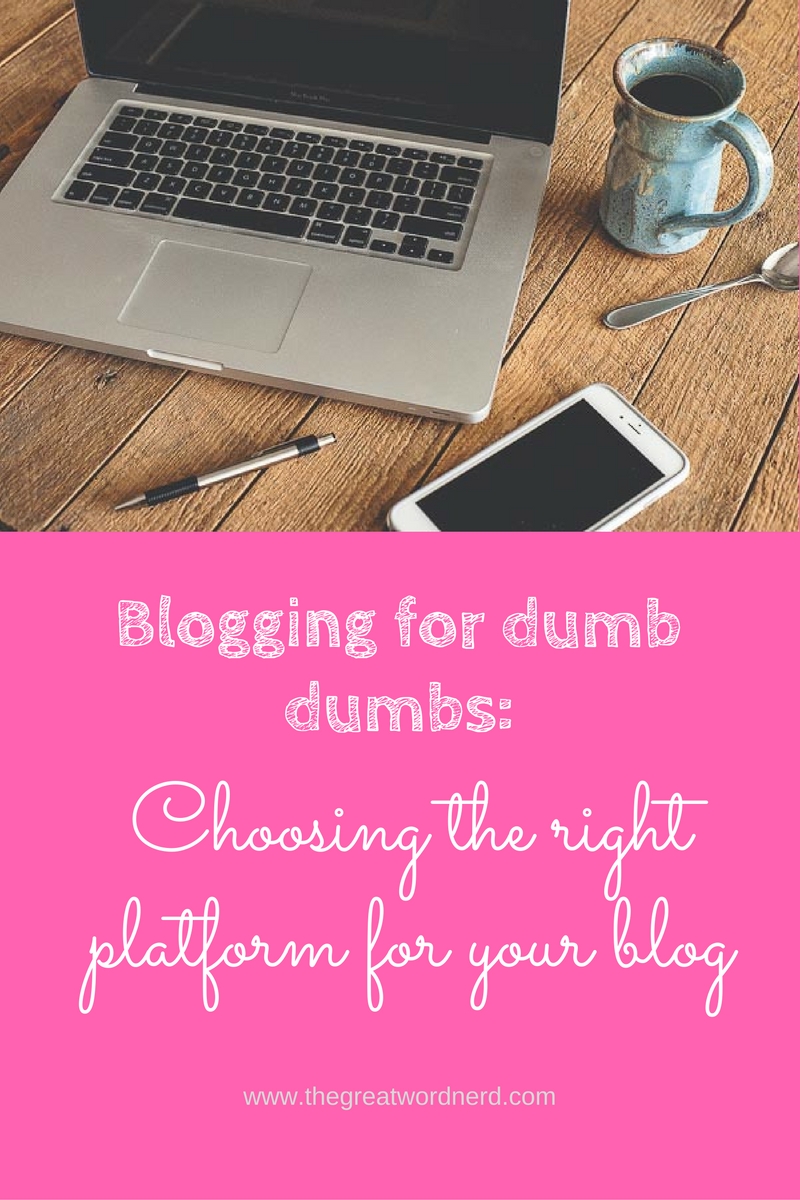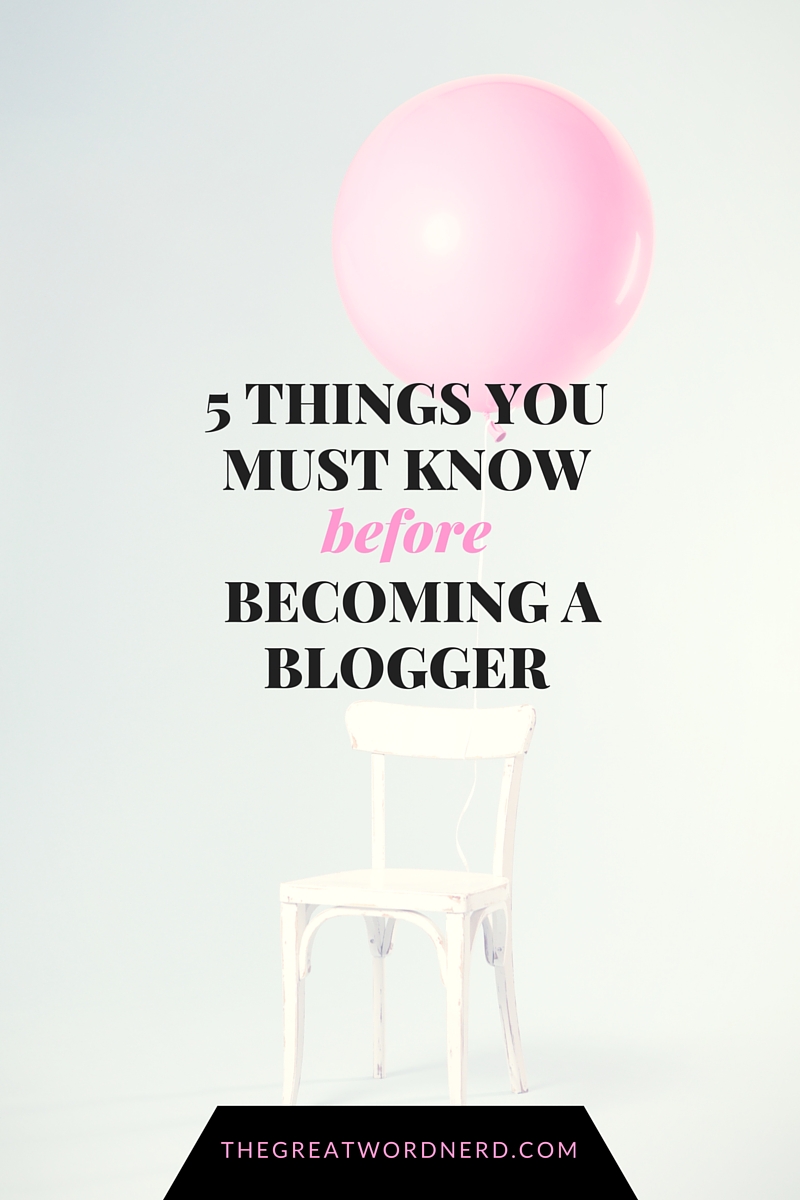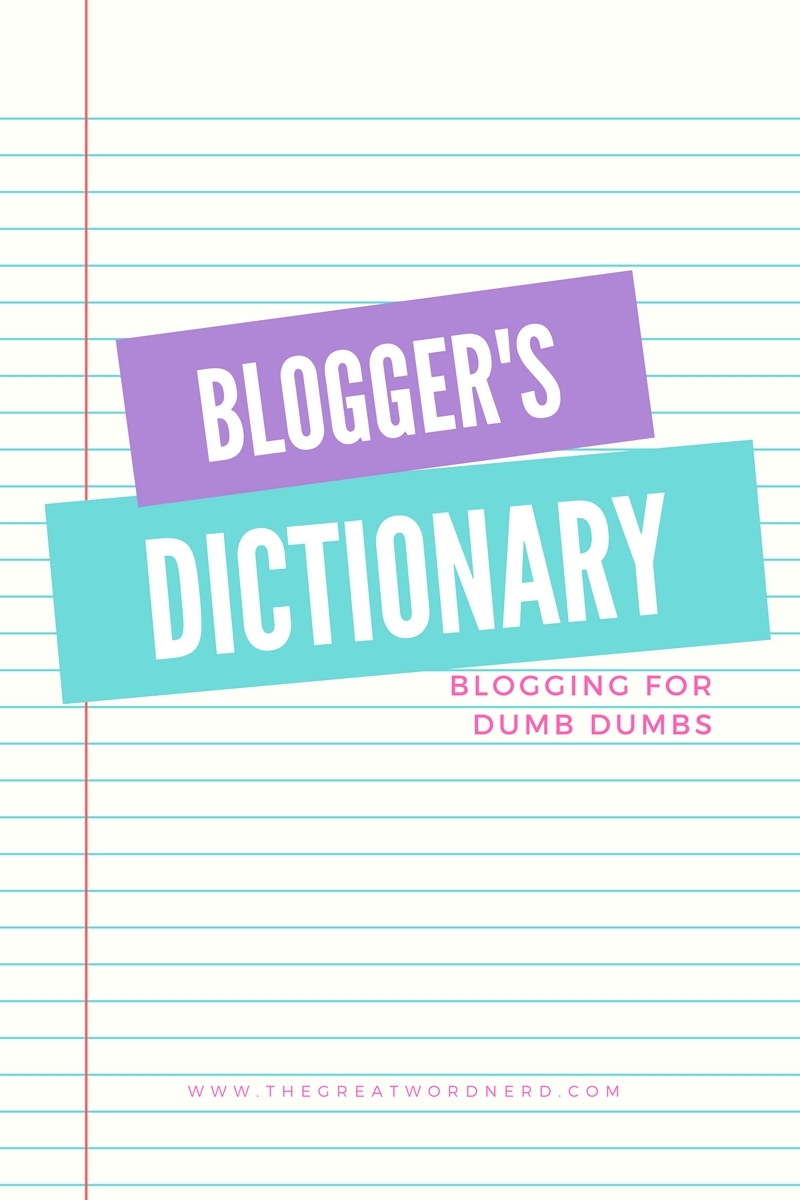Now that you’re sure you want to trudge ahead on the journey to becoming a blogger, let’s get down to some serious stuff!
One of the first things you’ll have to do is select a platform for your blog. What’s a platform? It’s the software you use to publish your blog. (You can find a list of more blog-related terms here.)
By this point, you should have a firm idea about whether you want to jump right in with your own fully customized, personalized, owned and operated blog (which will require some money, time and commitment) or if you want to test the waters with a free one before committing to anything.
Free platforms
First, let’s look at the free blog platforms. Free platforms have some caveats. Since these allow you to build your own blogs for free, the platform may display certain rules for posting that you will have to abide by in order for your post to be published (this is especially true of HubPages). Also, you might see ads pop up on your blog, but you won’t be making all, if any, of the money from those ads if someone clicks on them–those profits largely go to the platform owner. Plus, these platforms have limited, if any, ability to allow you to customize the look and feel of your blog.
Popular options for free blog platforms include:
I would strongly recommend free platforms for those of you who don’t want to dip into your wallets just yet and are still on the fence about how much time you’ll realistically be able to commit to maintaining your blog. It never hurts to test before you dive, and you don’t want to spend money and time building a beautiful site, only to have your excitement fizzle out like a can of Coke.
If making money is alluring to you, but you’re not yet ready to invest in a big way, HubPages and Blogger are great free options that allow you to earn an insignificant amount for clicks generated by your post, and track your views and popular posts.
Paid platforms
Now. If you’re gung ho about blogging, and just know that this is your calling in life and absolutely cannot wait for me to just get on with the show, let’s boogie on ahead. You’ve got a few choices to select from:
-
WordPress.org (don’t get this confused with WordPress.com—getting to that in a sec!)
-
SquareSpace
-
Joomla
-
Drupal
If you want more details on WordPress, Joomla or Drupal, here’s a site that does a great job of comparing the three.
I will start by saying that I, like most bloggers, am completely and totally partial to WordPress.org. But maybe I’m the wrong person to offer an opinion, because it’s not like I’ve ever had a .com site through anyone else! In my defense, I will say that a strong majority of bloggers are WordPress fanatics. And it’s simply because it has the best functionalities and capabilities for bloggers and is also the easiest to use for us non-techy folks.
WordPress.com vs. WordPress.org
Ok, so you’re probably a little confused by now because I have WordPress listed under both categories. Let me clarify. WordPress is HUGELY popular for blogging. But the name can get confusing if not followed by a .com or .org, because there are two distinctly different types of WordPress products that are extremely popular in the blogging world, of course: WordPress.org and WordPress.com.
Let’s quickly clear the confusion in the simplest way possible. WordPress.com is the completely free one (you can upgrade for a cost, but, hey, let’s not get into all that), and you don’t have to pay separately for a host or domain. Of course because it’s free it has limitations, including not as many opportunities to customize.
WordPress.org, on the other hand, is free as well…but not quite, because you have to invest in a domain and host, both to be covered in my next post. But you have a lot more ability to customize both the functionalities of your site as well as its look and feel through thousands of available themes.
Instead of me continuing on and on about the differences between these two platforms, here’s a table that hopefully helps create a clearer picture.
|
|
WordPress.com |
WordPress.org |
Cost |
Free, but you can upgrade if you want |
Free, but you have to pay for hosting and domain |
URL |
www.name.wordpress.com |
www.name.com |
Theme |
Limited free themes. Premium available at a cost |
Thousands of free and premium themes |
Plugins |
Limited to a selection of plugins |
Thousands of free & premium plugins |
Maintenance |
You don’t have to do anything |
You must update WordPress, plugins and themes |
Control |
You have limited control |
You have complete control |
Monetizing |
Cannot make money off your site. You may see ads on your site, but you won’t be the one making money if someone clicks on them. |
Can add endless avenues to generate money through AdSense, stores, affiliate programs or advertising plugins and more. |
Ideal for |
People who aren’t sure blogging is quite right for them, but want to test the waters. |
People who are serious about blogging, want the ability to design their blog with flexibility and are open to learning a little bit about HTML. |


